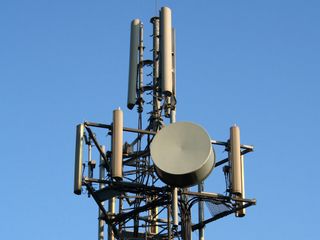Mobile phone masts don't make you ill
EHP: Any symptoms are psychological reactions, not physical

There is no such thing as an allergy to mobile phone masts. People living near mobile phone masts have often complained about symptoms of ill health, but the masts are not to blame, according to an Environmental Health Perspectives (EHP) study.
The study surveyed people who believed nearby mobile phone masts were the cause of symptoms such as anxiety, nausea and tiredness. It found that dozens of sufferers were unable to detect whether mobile phone signals were on or off.
When sufferers thought the signal was on, they reported more distress. This points to a psychological problem rather than a physiological one, BBC News reports. Nevertheless, these people were still suffering real symptoms.
"Belief is a very powerful thing," said professor Elaine Fox, of the University of Essex, who lead the three-year Environmental Health Perspectives study. "If you really believe something is going to do you some harm, it will."
Electro-sensitivity
There is no data on how many people in the UK suffer from electro-sensitivity, an allergy believed to be triggered by electronic equipment. In 2005 the Health Protection Agency (HPA) said there was no scientific evidence to link ill health with electrical equipment. Although it acknowledged that sufferers could have real and unpleasant symptoms.
The EHP study is the biggest one of its kind yet, and the first to consider the effects of waves from mobile phone masts. It tested a total of 44 people with a history of symptoms against a control group of 114 people who had never reported ill effects from masts.
When mobile phone signals - both GSM and UMTS/3G - were being emitted, and participants were told of this, some individuals reported lower levels of well-being. But when tests were carried out in which neither the experimenter nor participant knew whether the mast was on or off, the number of symptoms reported did not correlate to whether a signal was being emitted or not.
Get daily insight, inspiration and deals in your inbox
Get the hottest deals available in your inbox plus news, reviews, opinion, analysis and more from the TechRadar team.
The suffered symptoms were real. As well as feeling unwell, sensitive individuals had sweatier skin and higher blood pressure - both measures of a physiological response. However these reactions occurred regardless of whether the signal was on or off.
"Hence the range of symptoms and physiological response does not appear to be related to the presence of either GSM or 3G signals," the study concluded.
"This should be reassuring news for anyone who is concerned about the possible short-term health effects of masts," Dr James Rubin of the Mobile Phone Research Unit , King's College London told BBC News .
